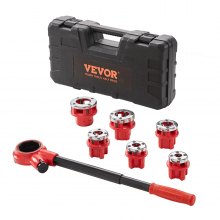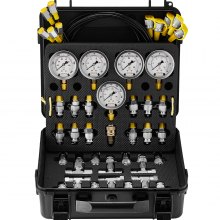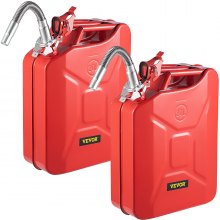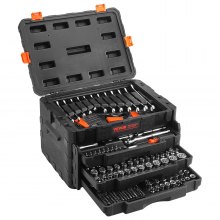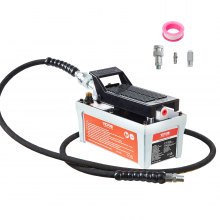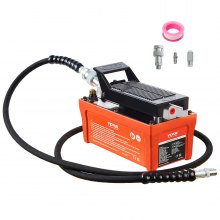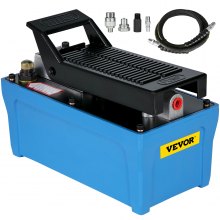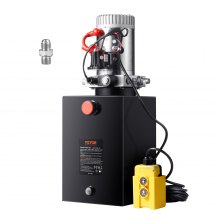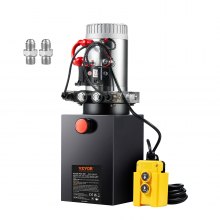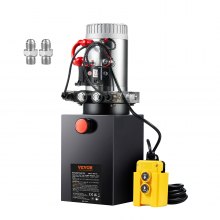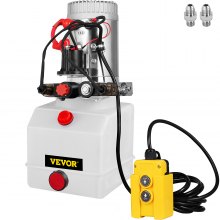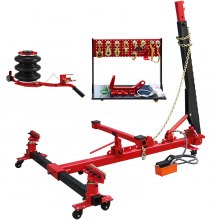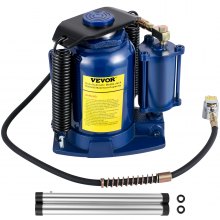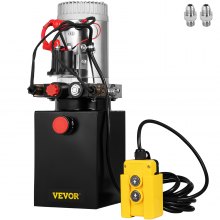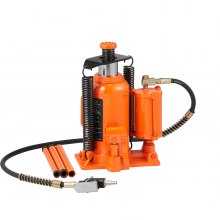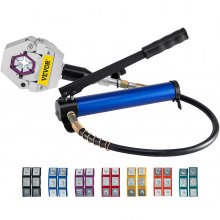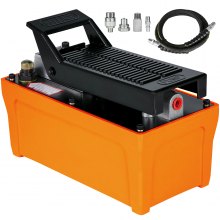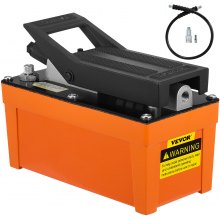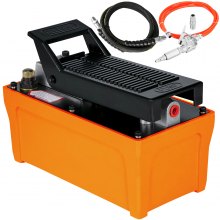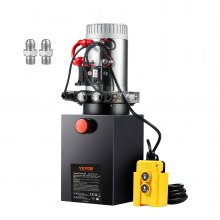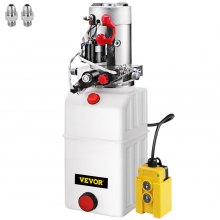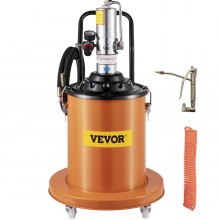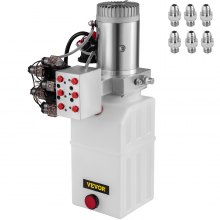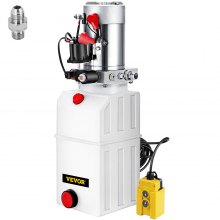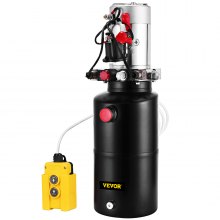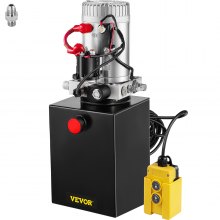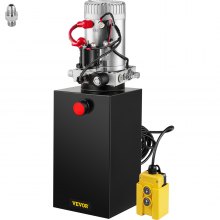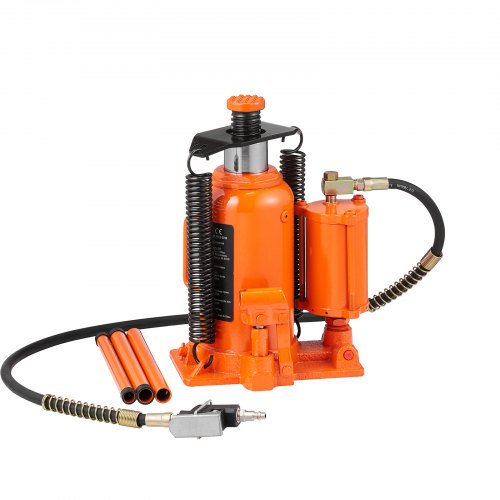Elevate Your Machinery with the Right 12v Hydraulic Pump
Discover the Power of 12v Hydraulic Pumps
In the realm of machinery and automation, the significance of hydraulic pumps cannot be overstated. Serving as the heart of hydraulic systems, these pumps convert mechanical energy into hydraulic energy, empowering a myriad of applications with precision and efficiency. Among the various types, the 12v hydraulic pump stands out for its compact size, portability, and versatility, making it a preferred choice for mobile applications, small machinery, and innovative projects.
Understanding 12v Hydraulic Pumps
The Essence of 12v Hydraulic Pumps
At its core, a 12v hydraulic pump is designed to operate with a 12-volt power source, typically found in automotive batteries. This feature makes it exceptionally suitable for use in vehicles, agricultural machinery, and any setting where a 12v power supply is readily available.
How 12v Hydraulic Pumps Work
The operation of a 12v hydraulic pump involves drawing fluid from a reservoir and pressurizing it, thereby delivering it to a hydraulic system to perform work. This process is pivotal in enabling movements and functions in hydraulic machinery, from lifting heavy loads to operating complex mechanical arms.
Applications of 12v Hydraulic Pumps
12v hydraulic pumps are remarkably versatile, finding applications in areas such as automotive lifts, mobile hydraulics, small-scale industrial machinery, and even DIY projects. Their compact size and efficiency make them an ideal choice for applications requiring mobility and space-saving solutions.
Selecting the Right 12v Hydraulic Pump
Understanding Specifications and Features
When choosing a 12v hydraulic pump, it's crucial to consider specifications such as flow rate, pressure capacity, and power consumption. Features like build quality, reliability, and ease of maintenance also play significant roles in ensuring the longevity and performance of the pump.
Types of 12v Hydraulic Pumps
Various types of 12v hydraulic pumps exist, each suited to specific applications. Gear pumps, piston pumps, and vane pumps are among the most common, with each offering distinct advantages in terms of efficiency, pressure capabilities, and suitability for different fluids.
Installation and Maintenance Tips
Installing Your 12v Hydraulic Pump
Proper installation is key to maximizing the efficiency and lifespan of your 12v hydraulic pump. This includes ensuring secure connections, proper alignment, and adequate ventilation to prevent overheating.
Maintaining Your Pump for Longevity
Regular maintenance, including checking fluid levels, inspecting for leaks, and replacing worn components, is essential to keep your 12v hydraulic pump in optimal condition. Following the manufacturer's maintenance schedule can prevent downtime and extend the life of your pump.
Enhancing Your Projects with 12v Hydraulic Pumps
Creative Applications and DIY Projects
The compact and versatile nature of 12v hydraulic pumps opens up a world of possibilities for creative applications and DIY projects. From custom automotive modifications to innovative machinery creations, these pumps can be the cornerstone of unique and functional designs.
Efficiency and Performance Optimization
Optimizing the efficiency and performance of your 12v hydraulic pump involves selecting the right pump for your application, proper installation, and regular maintenance. This ensures that your hydraulic system operates smoothly, with minimal energy wastage and maximum productivity.
Safety Considerations
Operating Safely with 12v Hydraulic Pumps
Safety should always be a priority when working with hydraulic systems. This includes understanding the operational limits of your 12v hydraulic pump, wearing appropriate protective equipment, and adhering to safety guidelines to prevent accidents and injuries.
Troubleshooting Common Issues
Being able to identify and troubleshoot common issues with 12v hydraulic pumps, such as leaks, noise, and pressure fluctuations, can help maintain a safe and efficient operation. Knowledge of basic troubleshooting techniques can save time and prevent further damage to the system.
VEVOR: Your Partner in Hydraulic Solutions
Why Choose VEVOR for Your 12v Hydraulic Pump
VEVOR stands out in the market for providing high-quality, reliable 12v hydraulic pumps that cater to a wide range of applications. With a focus on innovation, durability, and customer satisfaction, VEVOR offers products that are not only efficient but also cost-effective.
Explore VEVOR's Range of 12v Hydraulic Pumps
VEVOR's extensive selection of 12v hydraulic pumps includes models designed for various applications, ensuring that you can find the perfect fit for your specific needs. Whether you're looking for a pump for industrial use, automotive applications, or a custom project, VEVOR has you covered.
Take Action: Elevate Your Machinery Today
Making the Right Choice with VEVOR
Selecting the right 12v hydraulic pump is crucial for the success of your project or application. With VEVOR's commitment to quality and customer service, you can rest assured that you're making a wise investment in your machinery's performance and reliability.
Get Started with VEVOR
Embark on your next project with confidence by choosing a 12v hydraulic pump from VEVOR. Visit our website to explore our products and find the perfect solution to elevate your machinery's capabilities. Remember, with VEVOR, you're not just buying a pump; you're investing in a partnership for success.
FAQs about 12v Hydraulic Pump
What Is a 12v Hydraulic Pump Used For?
A 12v hydraulic pump is a compact and efficient device designed for various applications where a 12-volt power source is available. It's widely used in automotive, agricultural machinery, and small industrial equipment. Thanks to its portability and efficiency, it's ideal for mobile hydraulics, operating lifting platforms, plows, and even in DIY projects requiring hydraulic power in a compact form. Its versatility allows it to fit into spaces where larger pumps might not, providing a reliable power source for hydraulic systems in a variety of settings.
How Do I Choose the Right 12v Hydraulic Pump for My Needs?
Selecting the right 12v hydraulic pump involves considering several key factors, including the pump's flow rate, pressure capacity, and power consumption. It's important to assess the specific requirements of your application, such as the necessary force and speed, to determine the most suitable pump type—be it gear, piston, or vane. Additionally, evaluating the pump's durability, maintenance needs, and compatibility with your hydraulic fluid will ensure that you choose a pump that not only fits your immediate needs but also stands the test of time.
Can I Install a 12v Hydraulic Pump Myself?
Yes, you can install a 12v hydraulic pump yourself, provided you have some technical knowledge and the right tools. The installation process involves securing the pump in place, connecting it to the hydraulic system, and ensuring all fittings are tight to prevent leaks. It's crucial to follow the manufacturer's installation guide closely to avoid common pitfalls, such as incorrect alignment or inadequate power supply, which can affect the pump's performance and longevity. If you're unsure about the process, seeking professional help is advised to ensure the installation is done correctly.
How Often Should I Perform Maintenance on My 12v Hydraulic Pump?
Regular maintenance is crucial to keep your 12v hydraulic pump running smoothly and extend its lifespan. The frequency of maintenance depends on how often the pump is used and the conditions it operates in. Generally, it's recommended to check the hydraulic fluid levels, inspect for leaks, and test the pump's performance periodically. For heavy-duty or continuous use, more frequent checks may be necessary. Consulting the pump's manual for specific maintenance recommendations and adhering to a regular maintenance schedule will help prevent issues and ensure reliable operation.
What Common Problems Should I Look Out for with My 12v Hydraulic Pump?
Several common issues can arise with 12v hydraulic pumps, including leaks, noise, and pressure fluctuations. Leaks may indicate worn seals or loose connections and can lead to reduced efficiency and potential damage to the pump. Unusual noise often points to cavitation or air in the system, which can cause damage if not addressed. Pressure fluctuations might suggest issues with the pump's valves or an inadequately sized pump for the application. Regular inspections can help identify these problems early, allowing for timely repairs and adjustments to maintain optimal performance.




























